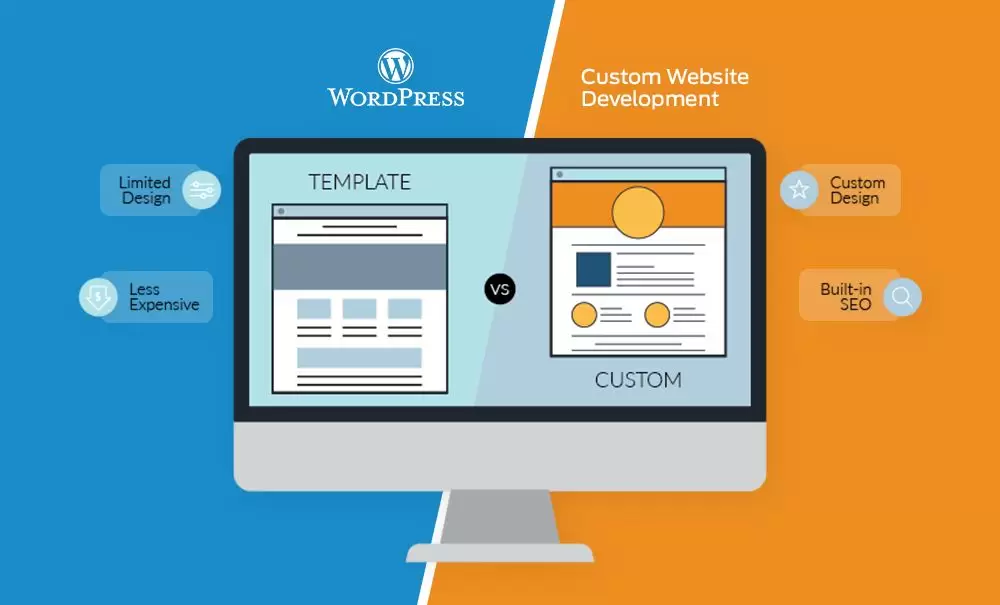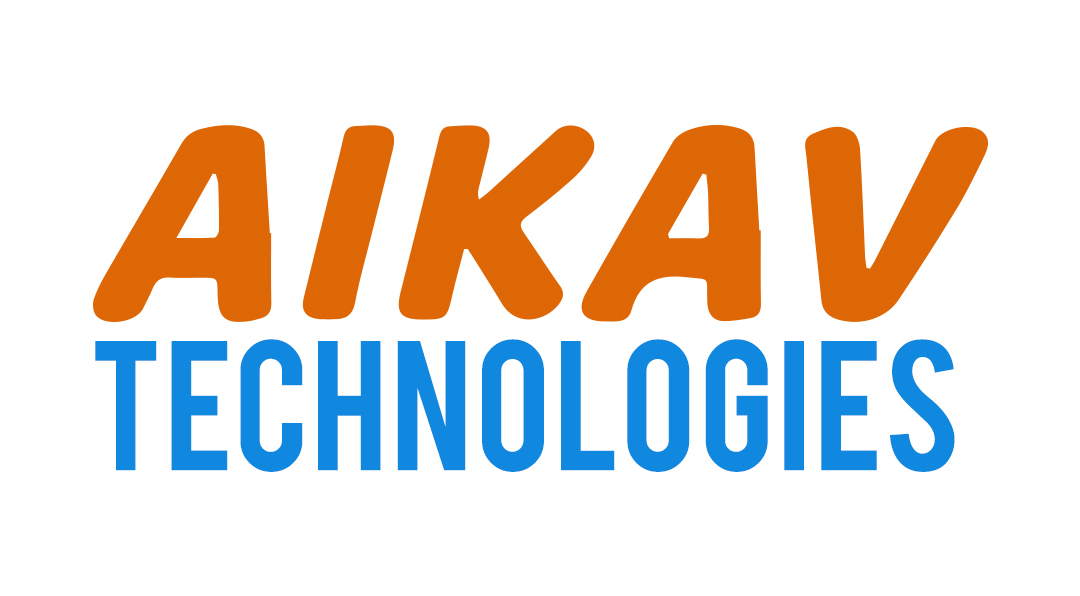
WordPress is the world’s most popular Content Management System (CMS), powering over 60% of websites with identifiable CMS platforms. Its open-source nature, intuitive interface, and flexibility in both functionality and design contribute to its widespread use. With over two decades of development and a vibrant marketplace, WordPress boasts more than 100,000 plugins and themes that enhance its features and design options.
It is also the leading CMS for top-ranking websites, including the top million, 100K, 10K, and 1K sites based on traffic. Custom WordPress development is particularly common among high-traffic sites, as major brands like TIME, Disney, TechCrunch, and the BBC rely on tailored solutions rather than off-the-shelf WordPress setups.
In this article, we’ll explore custom WordPress development for enterprises by addressing the following key questions:
- What advantages does a custom WordPress site offer over a pre-built theme or a fully custom-coded website?
- How can custom WordPress development benefit mid-market to high-end enterprise users?
- What factors determine if a custom WordPress site is the right choice for a particular business?
What Is a Custom WordPress Site?
Enterprise businesses often turn to custom-built WordPress sites for a variety of reasons. These organizations typically have specific hosting, design, and functionality requirements, along with industry-specific needs related to data privacy, accessibility, and commerce.
A custom WordPress site provides greater flexibility and creative control compared to sites using default WordPress installations and off-the-shelf themes. It allows for unique design elements and tailored functionality, including the option for "headless" architecture. This approach can be particularly beneficial for larger organizations that need to deliver content across multiple web applications for omnichannel commerce and publishing.
Custom WordPress sites are often built by expert designers, developers, and agencies who create unique Gutenberg block themes, custom plugins, and other bespoke code to meet the specific needs of their clients.
While building a custom WordPress site may seem like a challenging task, this article will help guide you through the decision-making process to determine when custom development is the best option for your website.
When to Choose Custom WordPress Development
Pre-designed themes certainly serve a purpose, but they often come with limitations, especially for businesses with unique design and user experience (UX) requirements. In such cases, a custom WordPress site becomes invaluable, particularly for rapidly growing companies. Unlike pre-made themes, custom development based on WordPress ensures scalability to handle traffic spikes without performance issues, even as your content expands and advanced features are integrated. This level of customization helps distinguish your brand from competitors and enhances your reputation as your business grows.
Custom WordPress development is especially beneficial for businesses that require tailored solutions beyond the capabilities of standard themes and plugins. It offers significant advantages over fully custom-coded websites, particularly for larger enterprises.
With a custom WordPress site, multiple team members can easily upload media assets and create content, boosting efficiency and reducing dependency on IT departments and developers for routine tasks. WordPress’s world-class content management system (CMS) empowers businesses to delegate responsibilities and reduce costs. Marketing teams and content managers can maintain agility and independence online without relying on engineering teams.
Key Points to Consider Before Building a Custom WordPress Website
Appearance and Functionality
Building a custom WordPress website requires careful planning to ensure an efficient user experience (UX) and intuitive user interface (UI). The focus should not only be on aesthetics but also on features and design patterns that enhance both UX and UI.
Thorough Planning for Enhanced UX/UI
A successful custom WordPress site hinges on thoughtful consideration of UX/UI elements. For example, incorporating intuitive navigation, strategically placed call-to-action (CTA) buttons, and visually appealing layouts can significantly improve the user experience. Ensuring compatibility across devices and browsers is also crucial, as this guarantees a seamless experience for all visitors. Adopting a mobile-first, content-centric design approach is effective and leverages WordPress's core strengths.
Functionality
Businesses need to identify and prioritize the essential software and interface features that align directly with their goals. For example, an eCommerce website benefits from features like robust product filtering, personalized customization options, streamlined checkout processes, and multiple payment gateway support.
For a university website, customizable landing pages for various degree programs and a user-friendly admissions portal would be essential.
For media and publishing websites, key features might include:
- Dynamic Content Management: A CMS designed for media and publishing allows for efficient creation, organization, and publication of articles, multimedia content, and breaking news updates.
- Multimedia Integration: Seamlessly integrating multimedia formats like videos, podcasts, and interactive graphics enhances content delivery and keeps audiences engaged.
- Social Media Integration: Social media connectivity expands audience reach and fosters community engagement through content sharing.
- Advanced Search and Navigation: Sophisticated search tools and intuitive navigation improve content discovery, increasing user satisfaction and retention.
- Subscription and Membership Management: Features for handling subscriptions, memberships, and paywalls offer monetization opportunities while managing content access.
- Advertisement Management: Capabilities to manage targeted ads help optimize revenue and integrate smoothly with advertising networks.
- Content Personalization: Personalization features based on user preferences, browsing history, and demographics can drive higher engagement by delivering tailored content.
Optimized Performance
Performance optimization is a key focus when developing a custom WordPress site. Developers can ensure faster loading times and smoother interactions by employing efficient coding practices and minimizing unnecessary bloat, improving overall user experience. Optimized performance reduces bounce rates and builds a positive brand image, encouraging long-term customer loyalty.
SEO Impact
Beyond UX, optimized site performance plays a significant role in search engine optimization (SEO). Clean and efficient code structures help search engine algorithms crawl and index the site more effectively, resulting in improved rankings on search engine results pages (SERPs) and increased online visibility.
Hiring the Right Team for the Job
A successful custom WordPress website relies on the expertise of the team that builds and maintains it. At Multidots, we are a leading WordPress development agency with a proven track record of over 350 WordPress site builds for major brands. We specialize in:
- User-Centered Designs: Crafting visually appealing UI/UX designs tailored to your industry.
- Custom Integrations: Enhancing WordPress websites with unique functionalities through integrations with third-party platforms and services.
- Custom Theme Design: Creating bespoke WordPress themes based on your designs or developing engaging designs in various formats.
- Migration: Efficiently migrating existing websites to WordPress, minimizing downtime for business continuity.
- Code Review and Security: Adhering to industry standards with comprehensive code reviews to ensure security and precision.
- Performance and Optimization: Prioritizing website performance by optimizing code, databases, images, and more for fast, high-performing sites.
With a strong portfolio and a focus on delivering exceptional solutions, Multidots is the perfect partner for businesses seeking custom WordPress development.
